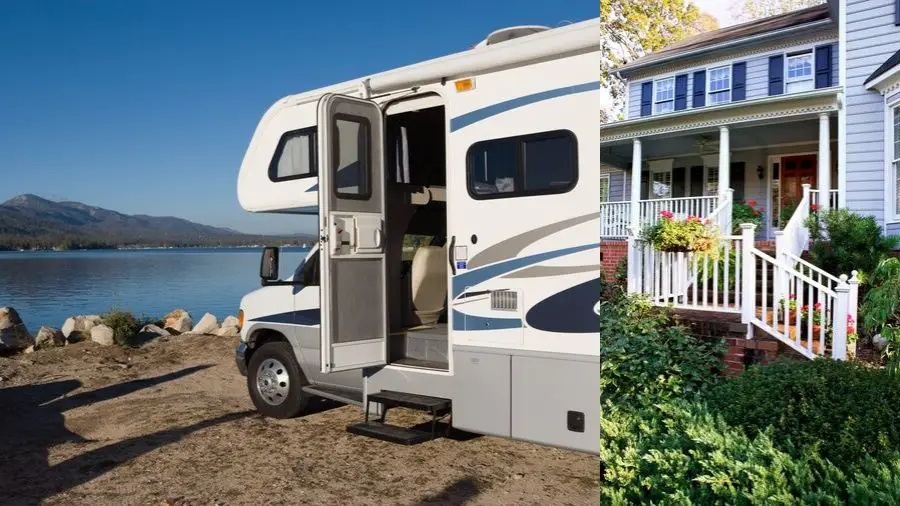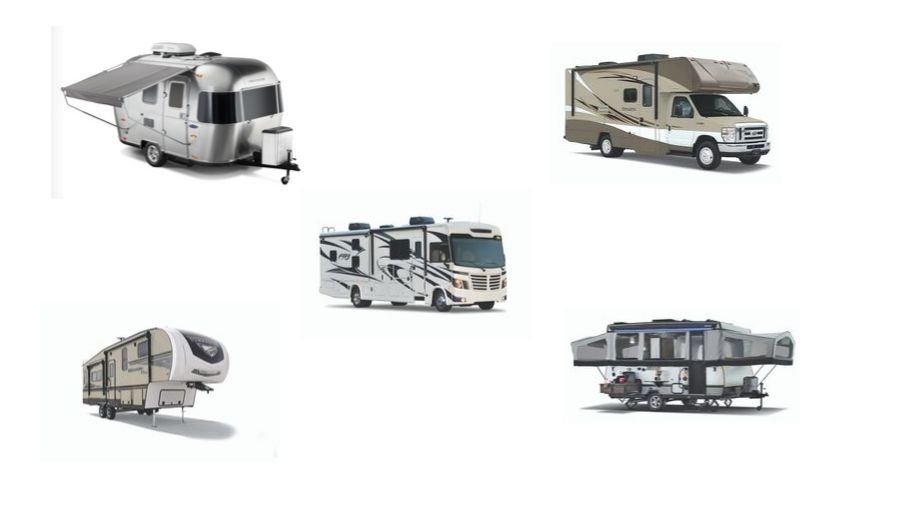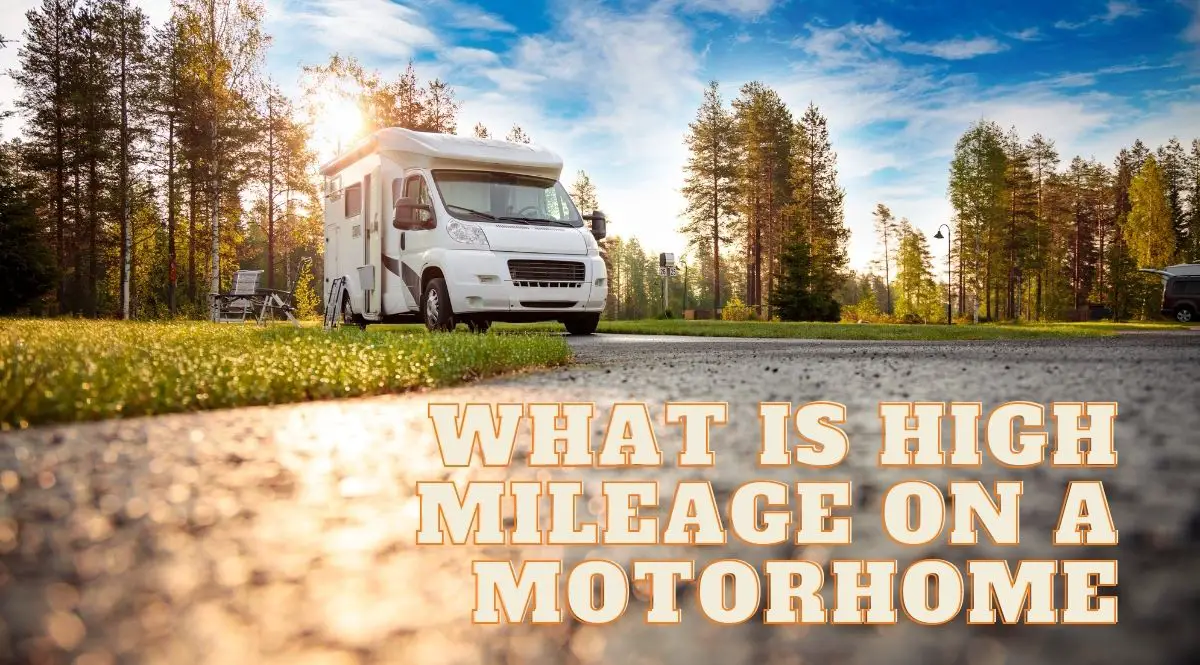There are a thousand and one reasons to own a camper. You may either want to re-live childhood experiences experience freedom, companionship, and the outdoors with loved ones, go on an adventure, explore new locations, meet new people; work from anywhere or just live outdoors full time. Whatever your reasoning for having one, you may be curious if your camper qualifies as a second home in Big Sam’s view.
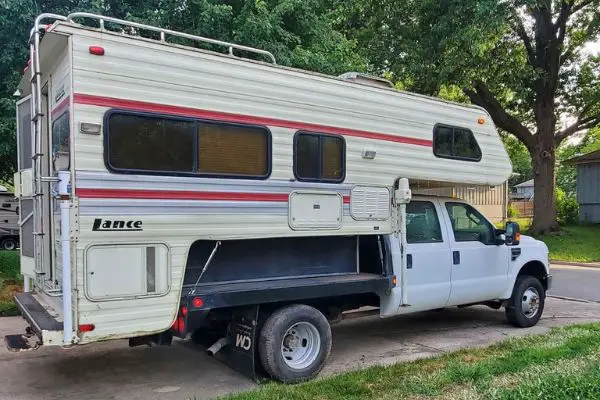
Fear not, a camper is a second home provided that it has some features. The technical definition of home is “a structure that has kitchen, sleeping, and bathroom facilities.” If your camper has all three, which most RVs do, it qualifies as a second home. However, if your camper is towable, and not self-propelled, it does not qualify for tax breaks.
If your camper meets these requirements, you can get tax deductions and take out loans and mortgages for as long as 20 years, just like any brick and-mortar house. If that does not convince you, that several high-end campers are more expensive than some houses will surely do!
But hey, not so fast, stay with me till the end. There are more layers to a camper being a second home than I summarized above. Having poured many hours of research, and speaking to experts, I can now show you the nitty-gritty of registering a camper as a second home and how to navigate the many pitfalls that cause heartbreaks. Now, let’s dive right in!
What Is A Second Home?
The purchase of an RV is a large investment for most families. One thing that may help soften the blow to your budget is the fact that your RV purchase can be partially offset by some very helpful tax deductions.
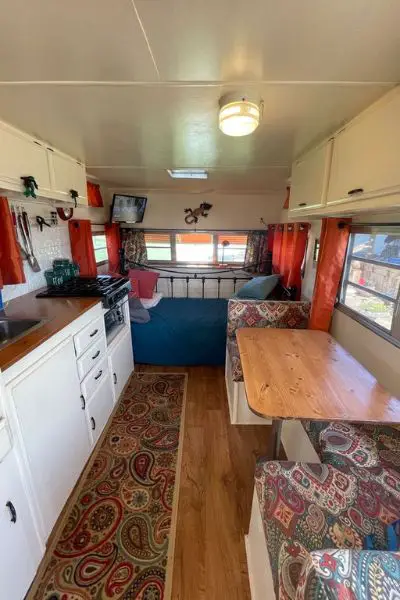
No matter your purpose for buying a camper, as long as the Internal Revenue Service’s standards, you can claim your RV as a second home. With your camper, you are eligible for tax breaks, as federal tax law allows you to deduct mortgage interest on both your main home and a second home.
Now, not all RVs meet the IRS’ definition of a home. According to the IRS Publication 936 (2017), “a home includes a house, condominium, cooperative, mobile home, house trailer, boat, or similar property that has sleeping, cooking, and toilet facilities.”
Your RV must, therefore, have sleeping, cooking, and toilet facilities. For your camper to be deemed to have sleeping facilities, you will need to have a separate sleeping compartment. Common areas, like couches and benches for sleeping, do not qualify your RV. However, if you have a small room with a bed or a loft sleeping compartment, congratulations, you have an RV with a “sleeping facility”.
Similarly, your camper’s bathroom has to have a fully-functional toilet and sink as well as a station to shower in. An enclosed shower to a detachable shower head works just fine, as it gets you clean. You don’t have to have all the bell and whistle, no one exactly expects a jacuzzi or multiple showerheads in an RV, do they?
Finally, the last thing you will need to have on your RV as far as accommodations go is a fully functioning kitchen. Your RVs kitchen will need to have a stove or a cooktop, a refrigerator as well as electrical hook-ups. No worries though, almost all campers have them in-built.
It is however very important that certain campers do not qualify. This is a result of an amendment to the tax law in 2017 which recognizes only self-propelled vehicles. Therefore, if you have a fifth wheel, fold-down, expandable, or some types of toy haulers, you don’t qualify for a tax break. Only motorhomes and truck campers are tax-deductible since they are more or fewer houses on wheels. Hopefully, this law will be amended soon to allow towable campers to be tax-deductible.
Yes, Your RV Is Tax-Deductible! Only If…
Now, if your RV meets all these conditions, the main benefit of listing it as a second home is that your loan interest is deductible as mortgage interest on your tax return, as long as you meet more IRS requirements. The IRS allows you to deduct mortgage interest on two homes as long as the loan amounts do not exceed $1.1 million dollars on the two homes together.
Also, while you don’t have to live in your camper to qualify for this break, it is not the same if you rent it out. If you rent your camper to a third person, you must use it for at least 14 days during the year or the IRS will consider it a rental property rather than a second home. This will also help ensure that you can claim RV interest on taxes.
Furthermore, you should keep in mind that the primary tax deduction is the loan interest deduction. The tax deduction is not for buying an RV as a second home, just as there is no tax deduction for buying your main home. It is therefore important that to qualify for the tax break, the loan must be secured either by your RV or by your main home.
Personal funds, 401ks, and cash payments don’t qualify as there is no mortgage interest to deduct. There is no mortgage interest deduction either if your personal loan is not secured by either the camper or your primary home. You can only deduct the interest if you take out a second mortgage on your main home and use the money to buy the RV.
Now you have it, you can collect tax breaks from not only your main home but your camper too. In case you are unable, you can also get tax breaks from your other properties, such as vacation homes, business properties, and real estate investments too. If you want to read more about it here is a link to the tax code.
Mortgage Advantages When You List Your RV As A Second Home
Another advantage of purchasing an RV is an incredibly flexible payment plan. There are loans for up to 20 years which eases the process by not placing too much strain on your budget.
Even better, if paying the loan for a long time does not appeal to you. You can combine the loans into one mortgage if you prefer paying for your properties in one payment or just wish to eliminate the second loan.
Listing Your RV As A Second, Gets You Homeowner Insurance
Finally, if you list your camper as a second home, it could qualify for similar homeowner insurance which will go a long way in savings while granting a higher level of protection almost equal to that of a brick and mortar home. On its own, insuring your camper can be an expensive undertaking which you have to do whether you like it or not.
However, since your camper will be listed as a second home, you can obtain homeowner insurance which typically covers interior damage, exterior damage, loss or damage of personal assets/belongings, and injury that arises while on the insured property. Another advantage of having a homeowner’s insurance is that the liability cap will be set at much higher than the normal RV insurance, the standard limits being $100,000.
Nowadays, many insurance companies now combine insurance plans for your main home and second home so getting it is much easier and entitles you to special insurance discounts. Check with your insurance company for details on your particular situation.
Miscellaneous Benefits
Now, you have seen the many benefits of claiming your RV as a second home. The money that you save by listing it is sure to make a difference in your finance. In fact, some states even allow for tax deductions for RVs from state taxes. To know if your state has such, you will have to contact a tax professional.
Capital Gains: When You Sell
It is pertinent for you to know that if you list your RV as a second home, and want to sell it off, you will be assessed for capital gains tax. However, if your camper was your primary residence for at least two of the five years immediately preceding the sale (known as the “2/5 year rule”), you can avoid part of the capital gains taxes on up to $500,000 of profit if you are joint filers (up to $250,000 for single filers) on the sale.
For example, if you owned your RV for 4 years, and lived in it as your primary residence for 2 years, 50 percent of your capital gains would be exempt, as long as it is not more than the stipulated limits.
For The Road: Listing Your RV As A Second Home
- Make sure your RV qualifies as a second home -The first step to take in order to list your RV as a second home is to pass the points of inspection. This means that your RV will have to feature a sleeping, kitchen, and bathroom area as discussed before.
- Make sure you are in the tax deduction bracket -Once you know that your RV is properly fitted with all the arrangements it needs to qualify, you need to make sure your finances are in order. Make sure that the lump sum of property loans doesn’t exceed $1.1 dollars. Also, make sure you can prove that you have made consistent tax payments on your RV and that they are stated on your previous year’s taxes.
- List Your RV as a Second Home -If you’ve done all the due diligence listed above, you can now list your camper as a second home. I’d advise that you enroll in professional help in dealing with the IRS. Best of luck!

